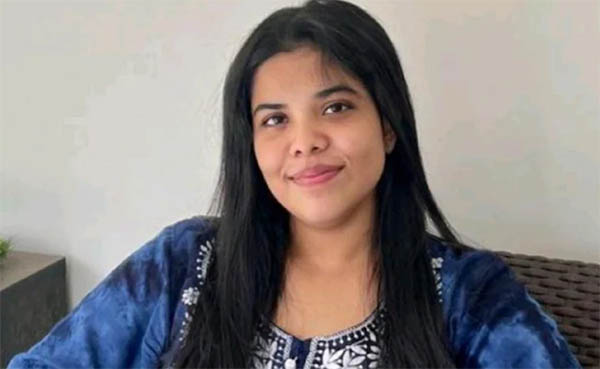
Death of 26 year old has sparked a broader conversation about the pressures faced by young professionals and the need for companies to place a higher priority on employees’ well-being
COMMENT | SHASHI THAROOR | The tragic death of Anna Sebastian Perayil, a 26-year-old employee at the accounting firm Ernst & Young (EY), from cardiac arrest in July has shone a spotlight on India’s intensely competitive work culture. It has also sparked a broader conversation about the pressures faced by young professionals and the need for companies to place a higher priority on employees’ well-being.
At the time of her death, Anna had spent four months at EY working grueling 14-hour days and seven-day weeks. In a heartfelt letter to EY, which has gone viral in India, Anna’s mother highlighted the “overwhelming pressure” her daughter was under at work – pressure that she believes contributed significantly to Anna’s deteriorating health and eventual death.
There have been no reports indicating that Anna had pre-existing medical conditions. On the contrary, her mother’s letter notes, Anna was a healthy young woman, who played badminton and kayaked. But, during her time at EY, she had been experiencing severe anxiety, sleeplessness, and stress.
In a heartrending conversation with me, Anna’s father recalled painful phone calls, in which a tearful Anna would describe arriving home well after midnight, only to receive a call from her manager with yet more work, to be completed by morning. On the one occasion she protested, her manager allegedly replied: “You can work at night. We all do.” In the days leading up to her death, Anna complained of chest tightness, and was told by doctors that she was not getting enough sleep.
For many young Indians, Anna’s story is all too familiar. With less than 0.2% of applicants gaining admission to some elite colleges in India, they had to fight hard to equip themselves to succeed in the workforce. As it turns out, however, landing a well-paying job in India is a rare triumph even for those with college degrees: the unemployment rate among university graduates is 29%. Compounding the pressure, many of today’s young university graduates with jobs must support their siblings at home.
When there are more qualified young people than jobs, and when failure is not an option, the work culture becomes cutthroat. Far from discouraging such competition, Indian companies stoke it with their emphasis on meeting goals and deadlines at any cost. Overwork is normalized, and boundaries between people’s jobs and personal lives disappear. Stories abound of young employees being denied a day off to attend a sibling’s wedding or a close relative’s funeral. Stress and burnout are inevitable and widespread.
In her letter, Anna’s mother urged EY to take steps to ensure its employees’ well-being. EY’s chairman in India, Rajiv Memani, responded with a LinkedIn post insisting that EY “has always” sought to “create a healthy workplace” and pledging personally to “champion” the well-being of EY employees. It represented a shift from Memani’s earlier – and much-criticized – comments doubting the claim that overwork contributed to Anna’s death.
EY has acknowledged the need to improve its workload-management practices before. A 2023 study showed that, despite the intense pressure on young Indians to keep their jobs, more than one-third of the firm’s employees were likely to quit within 12 months. According to her father, the same was true for Anna, who joined EY soon after that survey was conducted.
Some sneer that Gen Z is simply unable to handle the work pressures that earlier generations took in stride. This attitude partly reflects the stigma still associated with mental-health issues, and leaves workers hesitant to seek help for fear of negative repercussions. It does not help that traditional Indian society, much like Japanese society, privileges a hierarchical structure in which respect for authority is deeply ingrained. This can make it difficult for employees to push back against unreasonable demands from superiors.
Given these cultural factors, addressing overwork in India requires a multifaceted approach, whereby firms promote mental-health awareness, encourage open communication, and foster a supportive work environment. For example, employers could introduce employee-assistance programs that provide access to counseling and mental-health services for workers dealing with stress and anxiety. Firms might also offer more opportunities to work remotely or allow for flexible schedules. And there is talk of organizing wellness events and activities that promote physical and mental health, such as yoga sessions, mindfulness workshops, and fitness challenges.
More fundamentally, firms must foster a culture of open communication, so that employees feel comfortable discussing their workloads and stress levels with their managers. Ensuring that leaders and managers are trained to recognize signs of stress and provide the necessary support to their team members is also essential.
These steps could create a healthier, more supportive work environment – if companies follow through with them. The risk is that employers will pay lip service to such solutions when scrutiny is intense, but return to business as usual when the news cycle moves on.
When it comes to working conditions, we cannot rely entirely on firms to police themselves. That is why Anna’s mother also called for an inquiry into the working conditions at EY. And it is why the Indian authorities, including the Union Labour Ministry, have launched an investigation aimed at ensuring justice in Anna’s case and preventing similar incidents in the future.
For the same reason, Anna’s father suggested that I introduce legislation establishing maximum working hours for “white-collar” office jobs, backed by strict fines and legal sanctions. (India already has laws protecting blue-collar workers, such as by mandating overtime pay.) I have pledged to raise this issue at the first opportunity when Parliament convenes for its winter session.
It is tragic enough that a high-achieving young person had to die to show India that it needs to change. Let us not compound the tragedy by allowing everything to stay the same.
****
 Shashi Tharoor, an MP of the Indian National Congress, was re-elected to the Lok Sabha for a fourth successive term, representing Thiruvananthapuram.
Shashi Tharoor, an MP of the Indian National Congress, was re-elected to the Lok Sabha for a fourth successive term, representing Thiruvananthapuram.
Copyright: Project Syndicate, 2024.
www.project-syndicate.org
 The Independent Uganda: You get the Truth we Pay the Price
The Independent Uganda: You get the Truth we Pay the Price



